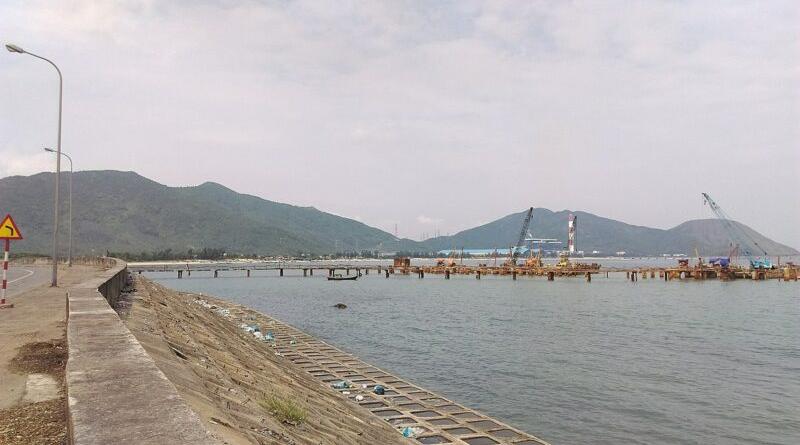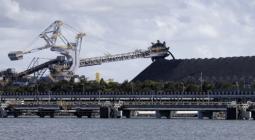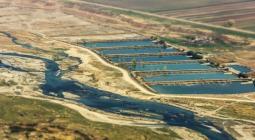Japan used ‘environmental’ fund to finance Vietnamese coal plant

A Japanese state-owned bank is using a green fund to finance a Vietnamese coal power plant, sparking accusations of “egregious greenwashing”.
The Japan Bank for International Cooperation (JBIC) announced last month it would invest $636 million in the controversial Vung Ang 2 project, through its Growth Investment Facility.
In response to questions from opposition lawmaker Mizuho Fukushima, seen by Climate Home News, the finance ministry revealed the loan came from a part of the facility targeted at “environmental preservation”.
Launching the facility in May 2018, Japanese finance minister Taro Aso told a meeting of Asian Development Bank governors it would “provide support for a variety of infrastructure projects that contribute to environmental preservation” like public transport and wind power.
However, the bank’s press releases show the “development of quality infrastructure for environmental preservation and sustainable growth” (QI-ESG) fund has supported five gas-fired power projects, compared to two in wind power and one in solar panel manufacturing. A total of 220 billion yen ($2bn) had been allocated to 11 projects as of November 2020, the finance ministry told Fukushima.
A policy presentation dated August 2020 by a senior JBIC official lists gas and high-efficiency coal-fired power generation as eligible for “environmental” funding, despite the fact burning fossil fuels is the main driver of global warming.
South Korea pursues Vietnamese coal plant, drawing international criticism
Vung Ang 2 is a planned 1,200 MW plant in central Vietnam. It will be built next to the existing Vung Ang plant. According to local media, in 2017 local residents blocked coal trucks leading to this plant in protest at the pollution and road damage they cause.
The plant will emit several times more sulphur dioxide, nitrogen oxide and fine particulate matter than would be allowed if it were in Japan, according to analysis from the Center for Research on Energy and Clean Air.
Ayumi Fukakusa, a campaigner from Friends of the Earth Japan, said: “It is, in the first place, unacceptable that JBIC support new coal projects, moreover with the fund which was advertised as ‘green and quality infrastructure'”. She said there was a “double standard”, with Japan pledging to reach net zero emissions domestically by 2050 but financing coal abroad.
JBIC finances its activities partly through issuing bonds, which are guaranteed by the Japanese government, making them a safe investment.
Ulf Erlandsson, a former pension fund manager who set up the Anthropocene Fixed Income Institute as a climate watchdog for international bond markets, called on investors to boycott JBIC.
He told Climate Home News: “We already have argued for JBIC to be excluded from international bond portfolios due to its coal financing. With the information that JBIC explicitly uses funds indicated as ‘ESG’ to provide such funding, we are comfortable putting JBIC in a frontrunner position for the ‘most egregious greenwashing of the decade’ award.”
Zsolt Lengyel, secretary of the Institute for European Energy and Climate Policy, said this “outrageous” case showed a need for more accountability from sovereign issuers to bond buyers.
“Finance streams must show real life impacts including their climate impacts. These must be verifiable and verified independently. This transaction is a proof that we lack such systems. Unless we build them fast, we will cripple the energy transition and be swept away by gargantuan greenwashing,” said Lengyel.
Analyst Simon Nicholas, from the Institute for Energy Economics and Financial Analysis, said that Vietnam does not need more coal power. “JBIC is encumbering Vietnam with old power technology at a time when the country is reducing focus on coal and seeing renewable energy installation skyrocket,” he said. “Vietnam installed almost 5GW of utility-scale solar power in 2019 and an astonishing 9GW of rooftop solar in 2020. Wind power is also expanding fast in Vietnam. Such renewable energy growth undermines the rationale for further coal-fired power development.”
Japanese public banks have previously counted coal power projects towards the country’s climate finance pledges. Japan International Cooperation Agency (JICA) loaned $1.4bn to support a coal plant in Bangladesh, claiming this funding was “contributing to the mitigation of climate change” because the plant was less polluting than other coal plants.
Japanese “climate finance” has also backed coal plants in India, Indonesia and Vietnam, Associated Press revealed in 2014. The Japanese foreign ministry at the time defended using climate funds in this way. “We don’t have anything to hide or disguise,” the official said.
A JBIC spokesperson declined to comment.





